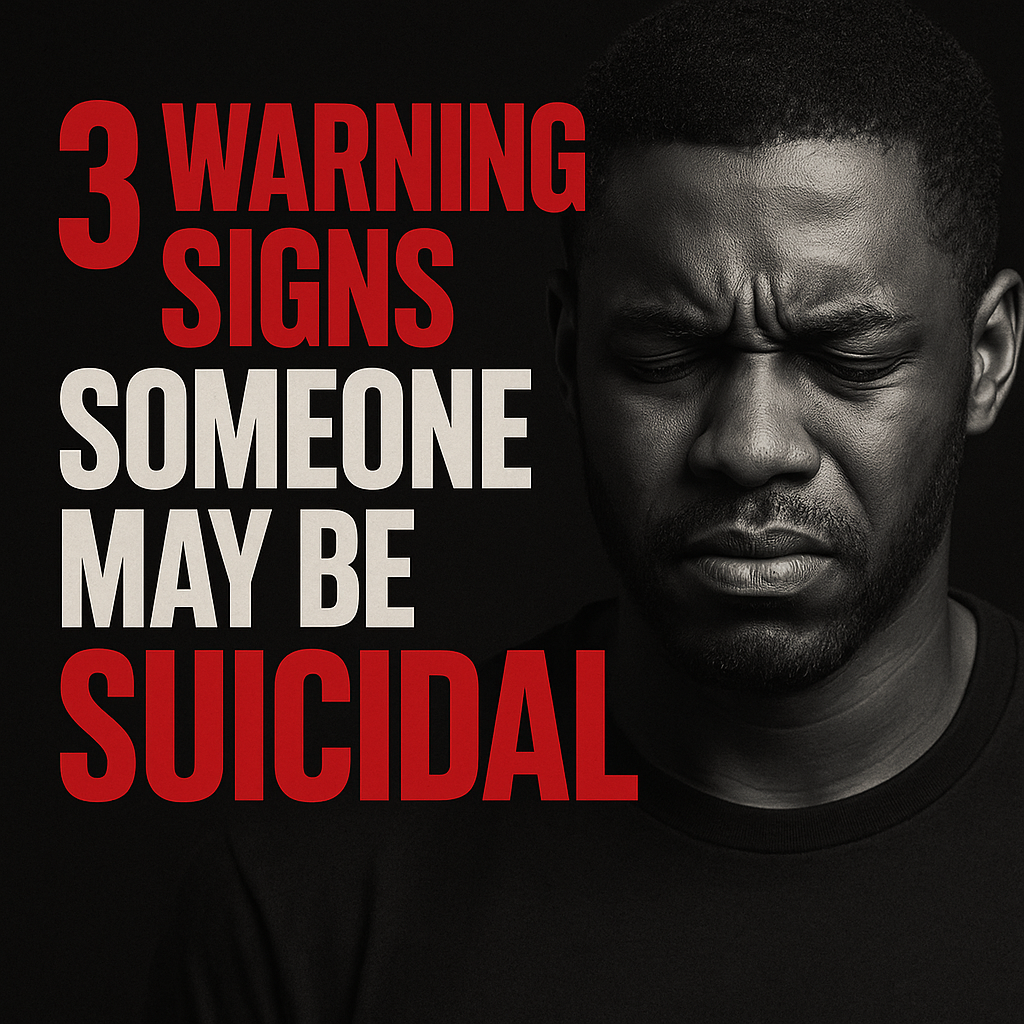When Silence Turns Deadly: The hidden signals of suicide and why communities can no longer afford to look away.
Suicide rarely arrives without warning. It whispers first. A sudden withdrawal. A phrase dropped too casually. A reckless shift in behavior that doesn’t quite fit. Yet in communities where strength is defined by silence particularly among Black and Brown men those whispers are often ignored until it’s too late.
Silence, after all, has long been mistaken for resilience. But silence is not neutral. It can be lethal.
The Warning Signs
Withdrawal from Community
The brother who stops showing up, the sister who grows distant, the colleague who fades into the background disengagement is often the first alarm bell. Expressions of Hopelessness
Words like “I can’t do this anymore” or “I wish I wasn’t here” may sound offhand. They are not. They are admissions that life itself feels unbearable.
Sudden, Uncharacteristic Behavior
Giving away prized possessions, acting recklessly, or exhibiting erratic mood swings can signal a person preparing for an exit. Recognizing these signs isn’t about paranoia. It’s about vigilance. Leadership whether in a family, a church, or being a part of a crew/set means having the courage to act when someone else’s life hangs in the balance.
What To Do When You Notice the Signs
Step 1: Take It Seriously
Treat every statement of despair as urgent. Believe what you hear.
Step 2: Show Genuine Care
Tell them directly: “I see you. I care about you. I’m here.” Recognition is oxygen.
Step 3: Ask Directly
Name the unspoken: “Are you thinking about ending your life?” It is not planting an idea; it is opening a door.
Step 4: Encourage Professional Help
Guide them toward a counselor, doctor, or trusted leader. Offer to help them get there.
Step 5: Keep Them Safe
If danger feels imminent, remove harmful objects and stay present. Call emergency services if needed.
Step 6: Stay Connected
Follow up. Again and again. A call, a text, a knock on the door reminders that the tether to life still holds. So pull up and don’t take no for an answer!
The Final Word
Breaking silence is political. It is cultural. And it is deeply personal. Suicide is not simply an individual crisis; it is a communal one. If we choose to see, to ask, and to act, we reclaim the truth that every life is worth holding on to.
Because in the end, survival is not just about endurance. It is about connection. And our willingness to stand with one another may be the most radical act of all.





